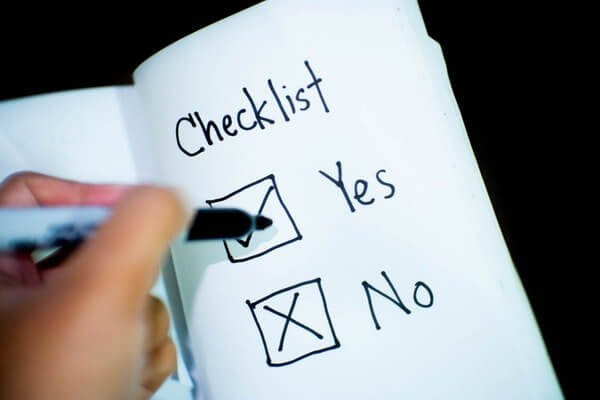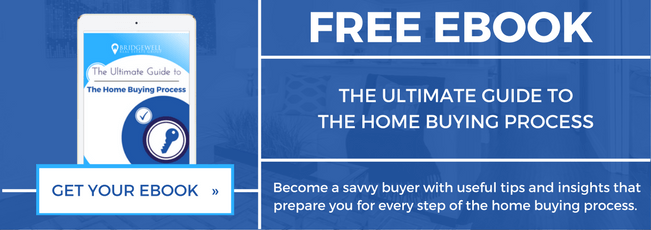Getting Ready to Buy a House
Important Tips to Prepare for Purchasing a Home
Sometimes the preparing part of getting ready to buy a house takes more time than finding the actual house of your dreams!
This blog will walk you through what you need to do when getting ready to buy a house to ensure smooth sailing throughout the entire process.
We go through our tops tips for the must-do’s before buying a house. Keep reading for important details!
Improve your credit score
Your credit is one of the factors that will affect affordability when buying a home, the others being your income and down payment.
In order to work with the A lenders you’ll want your credit score at 680 or above. If you’re lower than that, you’re either going to have to pay a premium or try to build a higher down payment. Most likely in this case you’ll be working with a B or C lender.
A good credit score would be between 680 and 750, and if you’re above the 750 mark you’re considering great and will garner the best rates on the market from a variety of lenders.
If you have outstanding payments that are showing on your credit report you’ll need to have them handled before the completion date. It’s better to pay these off sooner rather than later, as it can take time for the report to update in order for the lender to approve your new score.
The online mortgage calculators won’t factor in your credit score when they give you an estimate of what you can afford, so you may want to consider pulling your credit score or asking someone to do it for you. (i.e. a mortgage broker) Beware of pulling your credit score too many times – it can hurt your score temporarily.
Save for down payment and closing costs
Now that you’re getting ready to buy a house you’ll want to save up enough for a down payment that will result in a monthly mortgage payment that is comfortable for you. Avoid the temptation to buy that new car or splurge on new shoes – try putting a portion of every pay cheque away in to a savings account and build up your down payment over time!
It is typical to have a down payment of 5-20% depending on the price of a home, but some choose to put down more. If you’re unsure of the amount of down payment you will be required to put forward, check out our blog post: Minimum Down Payment Rules BC
Don’t forget – in addition to the down payment you’ll also have to cover closing costs, which are due at the completion date. Examples of these costs are things like property transfer tax (aka land transfer tax), notary fees, property tax adjustments, maintenance fee adjustments, and more.
If you’re looking for a more detailed breakdown of closing costs, check out our blog post: Cost of Buying a House
Talk to a mortgage broker to find out what you can afford
Once you have your credit score, down payment, and closing costs all prepared, you’ll want to start talking to a bank or a mortgage broker to find out what you can afford.
This is a very important step, because you don’t want to start searching for houses in the $1,000,000 range only to find out later that you can only afford $800,000. It’s a disappointment and a waste of your time!
Once you find out what you can afford, you’ll also want to consider your current lifestyle and how that might change over the next 5 years. Are you sure you really want to push your purchase price to the maximum that you can afford? How will you respond if interest rates rise? Are your kids going to be eating Kraft Dinner for the next 2 years if you go to your max? Knowing what you can afford and deciding where you’ll be most comfortable are two things you’ll want to consider when getting ready to buy a house.
Get pre-approved
This ties in to the last point – but when you talk to a mortgage broker to find out what you can afford make sure you go through the whole process of submitting your documentation (i.e. Notice of Assessments, T4s) so that they’re ready to go if you find a place you love and want to write an offer on.
A pre-approval will also benefit you in the event that interest rates are rising. Your mortgage professional will be able to lock in the current interest rate upon your pre-approval, and hold that rate for 90-120 days typically. If you purchase a home during that window of time but the interest rates have risen since your pre-approval, you’ll still be able to use your “locked in” rate and avoid the increase in interest.
It’s very important that you don’t leave this step to the last minute. Too often, home buyers leave this until they find the home of their dreams and then watch that home go to another buyer who already had financing in order. Many sellers do not want to work with buyers that aren’t already pre-approved as they find it risky. The mortgage pre-approval process is a free and non-binding process that will allow you to be prepared when you do find “the one.”
Find a realtor
The home buying process is complex and detailed and it’s important that you have an experienced agent walk you through everything. A realtor will work in your best interests and make sure that you are protected and properly represented in what is most likely the biggest transaction of your life.
A realtor will also have a large network of inspectors, mortgage professionals, insurance brokers and more that will prove to be valuable resources for you throughout your home buying journey.
If you’re looking for more information on the benefits of a real estate agent, check out: Buying with Bridgewell
Create a needs and wants list
When getting ready to buy a house you’ll want to create a needs and wants list. This will separate your needs from your wants, and ensure that you are laser focused on exactly what you home needs to provide for you.
An example of needs would be “within a ## budget,” or “3 equal sized bedrooms,” or “minimum interior square footage of ##.”
An example of wants might be “quart countertops in the kitchen,” or “laminate/hardwood flooring in the living spaces.” For most of our clients, we find that the wants are mainly cosmetic whereas the needs are structural things that are more difficult to change.
Try to be open when it comes to the things that you can change or renovate down the road, and focus mainly on what you really need! Another tip is to determine which wants are most important – for example, a new roof might not be as sexy as a fully renovated kitchen, but it will likely be more beneficial for you.
Start shopping!
Once you’ve completed all of the above steps, then it’s time to start shopping! Your realtor will be able to set up private showings for you, and you’ll also have the opportunity to check out open houses that are available.
When first starting, it’s a great idea to check out different neighbourhoods and explore locations that you may consider in your home search. Don’t forget to refer back to your needs and wants list and adjust accordingly and you start to figure out what you like and don’t like.
—
If you’re looking to purchase a property and would like guidance on how to get the ball rolling, then give us a call. We’re happy to walk you through the process so that you have a clear idea of how to purchase from the start. Start a conversation by calling or texting 604-319-0200 or email [email protected] to start a conversation. We’re here to help.




